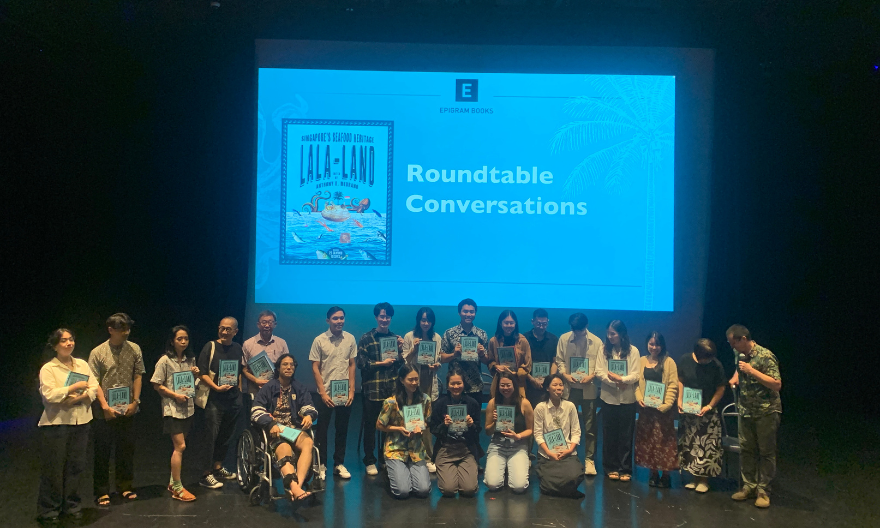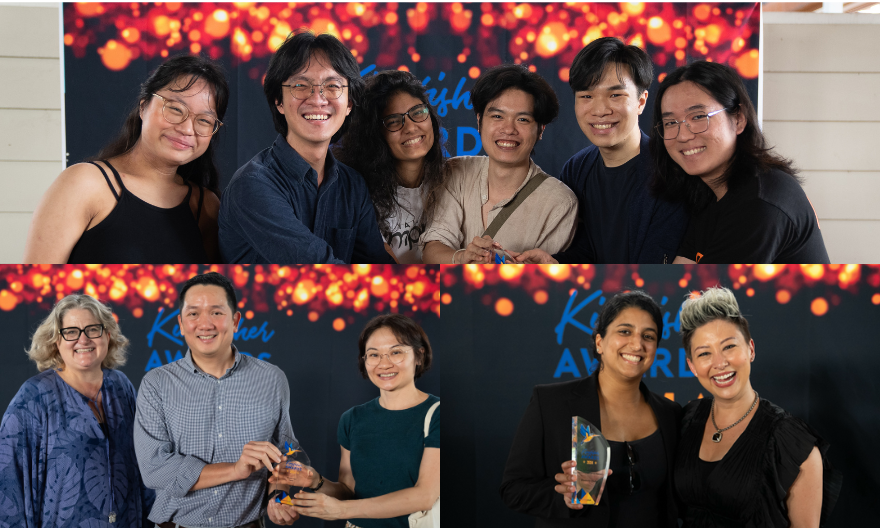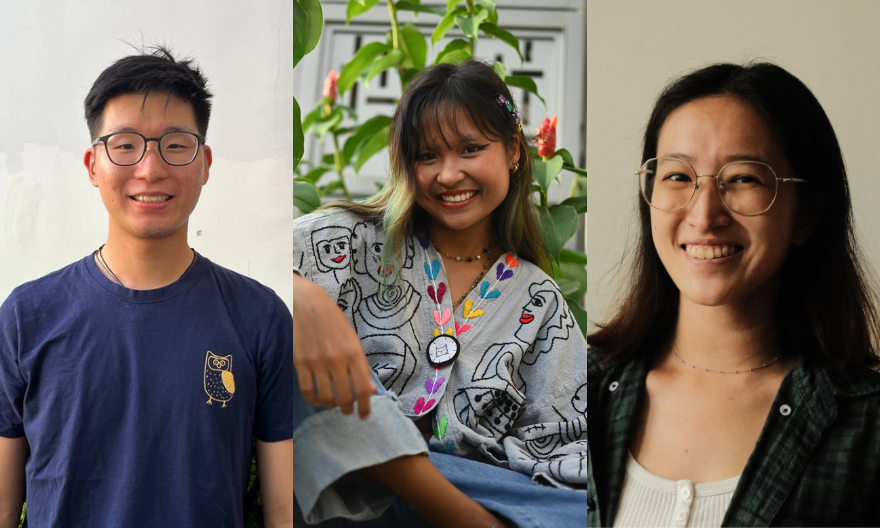Workshop co-organised by Yale-NUS faculty promotes understanding of Singapore’s food history
Singapore is well-known as a food paradise but how much do people actually know about the history behind the food here? How does it intertwine with the nation’s development? To address this, Yale-NUS College Assistant Professor of Social Sciences (Environmental Studies) Anthony Medrano co-organised a virtual workshop with Dr Geoffrey Pakiam, Fellow at the Institute of Southeast Asian Studies (ISEAS)-Yusof Ishak Institute, titled ‘The Hungry City: Singapore’s Food History in Global Perspective’. The workshop took place from 27 to 28 May 2021, and was held in conjunction with the Singapore HeritageFest.
 Asst Prof Medrano introducing one of the presentations during the virtual workshop. Image provided by Asst Prof Medrano.
Asst Prof Medrano introducing one of the presentations during the virtual workshop. Image provided by Asst Prof Medrano.
Asst Prof Medrano and Dr Pakiam planned the workshops to create new conversations about Singapore’s food history. “We wanted to explore new ways of understanding the story and language of recipes, ingredients, dishes, kitchens, gardens, restaurants, kopitiams (coffee shops), markets, medicines, faunas, floras, and families,” Asst Prof Medrano said. “We also hoped to encourage interactions between – and among – heritage scholars, chefs, students, teachers, artists, writers, and cultural intellectuals, all of whom have contributed to Singapore’s food history.”
Besides exploring Singapore’s food history, the discussions at the workshops also provided insight into how this knowledge is connected to Singapore’s modernisation. The diverse range of speakers – including students, food writers and academics – explored Singapore’s food history from culinary, social, environmental, political, and economic perspectives. They also delved into the history of science, technology, and medicine behind food.
On the first day of the workshop, the speakers focused on food history through a cultural perspective, bringing together memoryscapes (both individual and collective remembrance of the topic), food work, and cultural identity to examine the role of hawker centers and the kopitiam culture in Singapore. Through novel research on the changing role of Singaporean hawker culture across time, and the histories of food spaces and the individuals who laboured to prepare food, speakers highlighted the nuances and complexities of Singapore’s food history.
As Asst Prof Medrano explained, there are many stories behind the physical spaces where food is prepared and consumed. Presenters delved into these stories through presentations such as ‘Understanding Singapore’s Hawker Culture Through Time and Space’ and ‘The Changing Face of Singapore’s Kopitiams’. He added, “We hope the lectures helped participants expand their understanding of kopitiams, kitchens, gardens, abattoirs, and restaurants, and how these “food places” shaped the story of Singapore as much as how Singapore shaped the story of these places.”
Yale-NUS alumna Kathy Poh (Class of 2020) gave a presentation titled ‘A Ray in the Shadows: Cultural Histories of the Stingray in Singapore’, which was based on a research paper she worked on with Asst Prof Medrano.
“Participating in the workshop was a wonderful opportunity for me to not only share my research with a wider audience but also learn from others who are also interested in food history,” Kathy reflected. “It was especially rewarding to hear that people came out of my presentation seeing sambal stingray from new perspectives.”
The second day of the workshop examined more novel perspectives of Singapore’s food history, such as the role of food production sites, sustenance from the sea and using food as medicine. For instance, Asst Prof Medrano’s presentation ‘Makan Obat: Rethinking Singapore in the Age of Plant Humanities’ focused on the role of food as medicine to treat local ailments.
On the overall impact of the workshop, Asst Prof Medrano was hopeful that it made important contributions to advancing knowledge about Singapore and its global food history. “Among other things, I think it deepened our understanding of Singapore’s edible faunas and medicinal floras, and how these faunas and floras fit into cultural dishes, social spaces, transregional connections, local memories, and the practices of environmental expertise. ”
Kathy echoed this sentiment. “Through panel discussions with other presenters, it was exciting to see how our research was in close dialogue, despite us coming from various disciplinary fields in both the Arts and Sciences.”
Asst Prof Medrano intends to continue his research in this area. “The Hungry City lives on! Geoffrey and I hope to organise a similar workshop next year,” he said. “We also hope to put together a publication based on our 2021 event”.
Video recordings of the workshop can be found at https://bit.ly/3gt1JLG.





